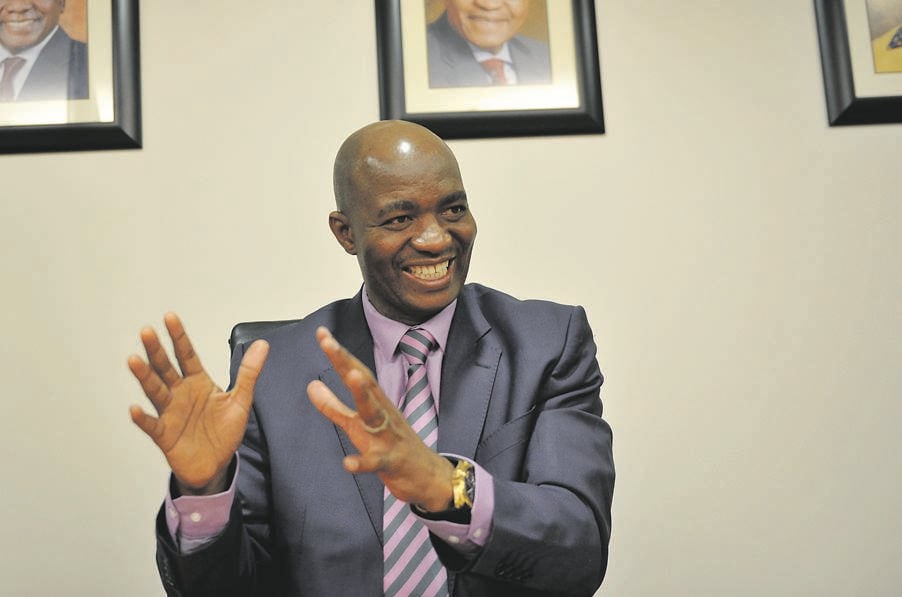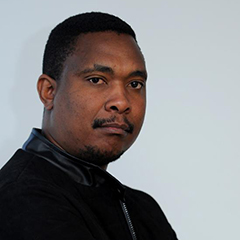
Basic education department director-general Mathanzima Mweli hopes that the Covid-19 pandemic pushed this year’s matric pupils to do well. However, his colleagues in the sector think otherwise.
Mweli would not put his neck on the block when asked whether this year’s class was likely to improve the pass rate or not. But he was upbeat about those who sat for this year’s matric exams, saying they were well prepared, including pupils in rural areas who did not have access to online learning amid the raging pandemic.
“What I can’t tell you is whether the results will improve or go down. Logically, you expect them to go down, but what a crisis can do to human beings is stretch them beyond what their wildest imaginations would have been able to reveal to them. That is what’s likely to happen,” Mweli said.
He said he had criss-crossed the country visiting 200 schools, most of them in rural areas and in remote places bordering South Africa’s neighbouring countries.
He visited schools on the border of North West and Botswana, in Musina in Limpopo near Mozambique, uMkhanyakude in KwaZulu-Natal close to Eswatini and schools in the Eastern Cape near the border with Lesotho, among other areas.
Mweli said he had been satisfied with the state of readiness of pupils ahead of the exams. What prompted his mission was to establish whether there was anything extraordinary being done by the teachers and pupils.
“I was moved. I was humbled. I wanted to motivate them and get them inspired and prepared to write the exams,” the director-general said. “I came back motivated.
“They said to me that they couldn’t wait to write their exams – they were more than ready. Those are [pupils in] rural areas.”
Mweli said he had visited eight of the nine provinces – the Western Cape was reportedly not “ready” – and had seen pupils and teachers hard at work over the weekends.
“It has never happened [before]. Very few [of the 200] schools maybe, [but the] numbers [of pupils] we’ve seen were unprecedented,” said Mweli.
He said support study camps for pupils had also been set up ahead of the exams.
“Two to four days before the exams, teachers were teaching, doing revisions to prepare pupils. They did it in the manner that they’ve never done it before.
“That’s [what was happening in] the rural areas. That’s [in places] where you don’t have access to the internet and connectivity,” Mweli said.
The year that was
Mweli said the best way to explain this year was using renowned author Charles Dickens’ words: “It was the best of times, it was the worst of times.”
"Best in a sense that, for the first time, we got stretched to the limit that we’ve never explored before – of being able to run our organisations and institutions outside the traditional mode of running them. For instance, we now have to use virtual platforms [instead of face-to-face meetings] to run our organisations. I can’t tell you when I last saw [a piece of] paper in the department."
“I sign [documents] anywhere, anytime. I don’t have to be in the office to do that. We are interacting and monitoring what is happening in schools and provinces using virtual platforms."
“And I think the way of doing business will not be the same again – even beyond the Covid-19 pandemic. We’ve all tested advantages of going beyond the traditional [ways of doing things]. And that is the best of times,” Mweli said.
He said the worst of times were the battle to reach out to pupils when they were in their homes because not all parts of the country have access to broadband.
“The cost of data is still something that is unaffordable for the majority of this country.
“As you know, we are predominantly a very rural, poor country and because of that, it made it extremely difficult to access pupils in their homes. But all over the world, learning for children who are in lower grades happens best in the classroom.
“The whole world was battling with that. Those were the challenges and that’s the worst of times that I would describe to be this year,” he said.
Relations with stakeholders
Overall, Mweli said the department had been able to demonstrate the strength of partnerships and collaborations with stakeholders in education.
“When we presented [our plan] to the national command council on Covid-19, the president cautioned that the sector has a myriad of stakeholders [and it was] not easy to navigate a way out."
“Even making decisions [was not easy]. You would have heard that we had divergent views from different stakeholders, but eventually we converged. That’s how we are going to explain this year.
“It’s been a difficult year, but very exciting too because it has been able to propel us to go to terrains that we’ve never fully explored before,” Mweli said.
| ||||||||||||||||||||||||||

